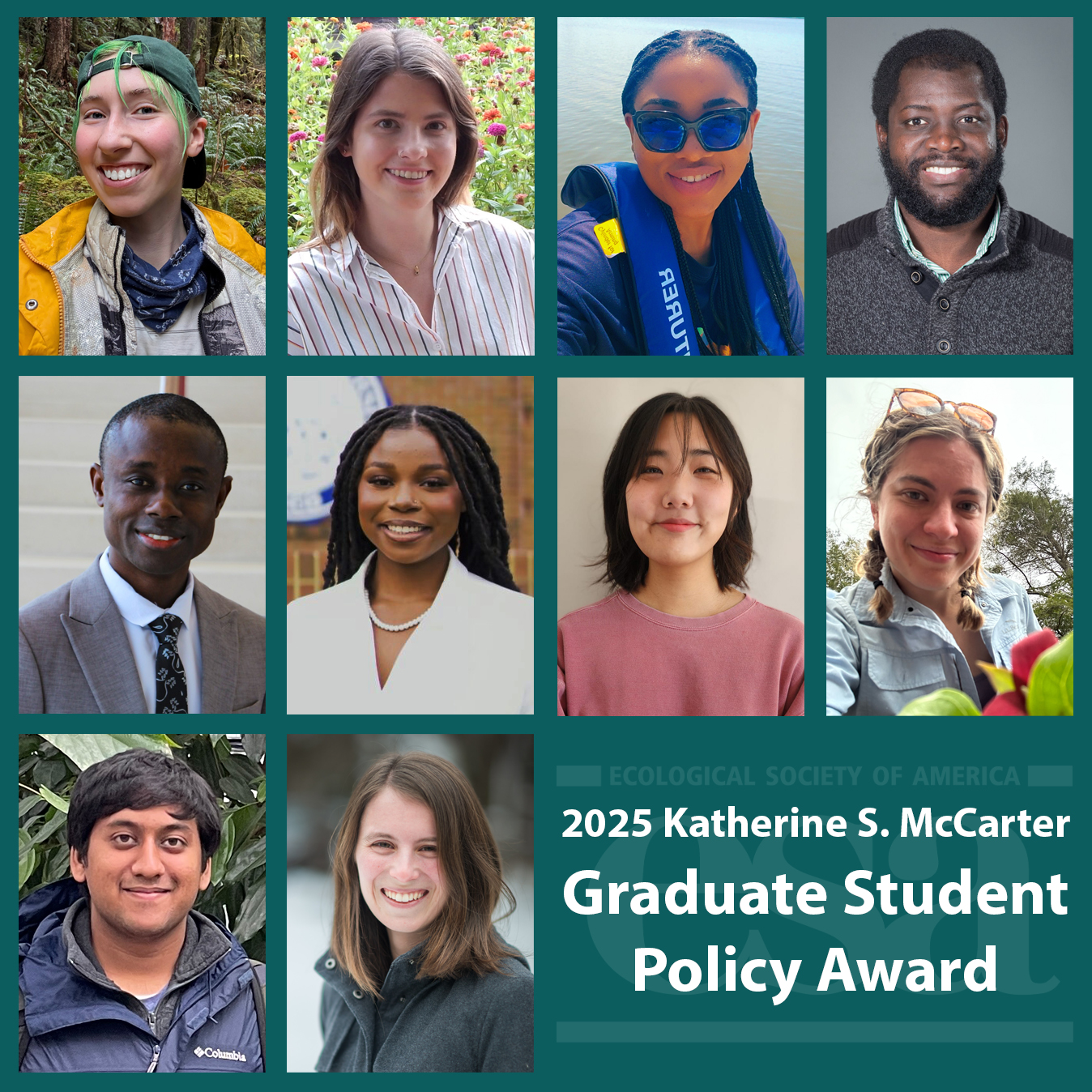Raymond Erskine ('20), a Ph.D. student in Biological Sciences at Clemson University, has been named one of the ten recipients of the 2025 Katherine S. McCarter Graduate Student Policy Award (GSPA) by the Ecological Society of America (ESA).
This prestigious award recognizes graduate students who demonstrate exceptional dedication to science policy and advocacy, bridging the gap between ecological research and decision-making.
Born and raised in Biriwa, a small fishing town in Ghana’s Central Region, Raymond grew up as the eldest child and only son in a family of three girls.
Life in Biriwa was far from easy, but the challenges he faced only fueled his ambition to pursue higher education and create a better future for his family and community.
Raymond’s passion for biology and the natural world led him to the Kwame Nkrumah University of Science and Technology (KNUST), where he earned a bachelor’s degree in Biological Sciences in 2020. During his time at KNUST, he distinguished himself as a diligent and curious student, eager to explore the complexities of ecological systems.
After graduation, he served as a Teaching Assistant in the Department of Theoretical and Applied Biology, where he honed his teaching skills and mentored undergraduate students.
It was during this period that Raymond began applying to graduate schools in the United States, driven by a desire to expand his knowledge and contribute to global ecological research.
In 2022, Raymond’s hard work paid off when he was accepted into the University of Northern Colorado’s graduate program.
There, he earned a master’s degree in 2024, focusing his research on the impacts of wildfires on forest dynamics in the Colorado Front Range.
His work shed light on how forests recover from disturbances and adapt to changing environmental conditions, laying the groundwork for his current Ph.D. research at Clemson University.
At Clemson, Raymond is studying the ecophysiological responses of trees to drought, with a particular focus on understanding how different tree species manage water stress and allocate resources in the face of climate change.
Raymond’s research also looks at how forests in the Southern Appalachian region, especially in the Great Smoky Mountains National Park, are changing. Specifically, he studies a process called mesophication, where forests that used to handle fire well are shifting to having more trees that can’t survive fires as easily.
By studying these changes, Raymond hopes to better understand how forests can bounce back from challenges. This knowledge is important for creating effective plans to protect forests as the world’s climate continues to change.
Beyond his research, Raymond is deeply committed to teaching and mentoring. As a Teaching Assistant, he has helped countless students grasp complex ecological concepts and develop essential scientific skills.
His dedication to education extends beyond the classroom, as he actively participates in professional organizations such as the Ecological Society of America, the International Association of Vegetation Scientists, and the Colorado Native Plant Society.
Through these platforms, Raymond advocates for the integration of scientific knowledge into policy and decision-making, ensuring that ecological research informs solutions to pressing environmental challenges.

Raymond’s selection for the 2025 GSPA award is a well-deserved recognition of his contributions to science and policy. As part of the award cohort, he will travel to Washington, D.C., for policy, communication, and career training, followed by meetings with lawmakers on Capitol Hill.
This opportunity will allow him to advocate for evidence-based policies that address critical ecological issues, from climate change to forest conservation.

















